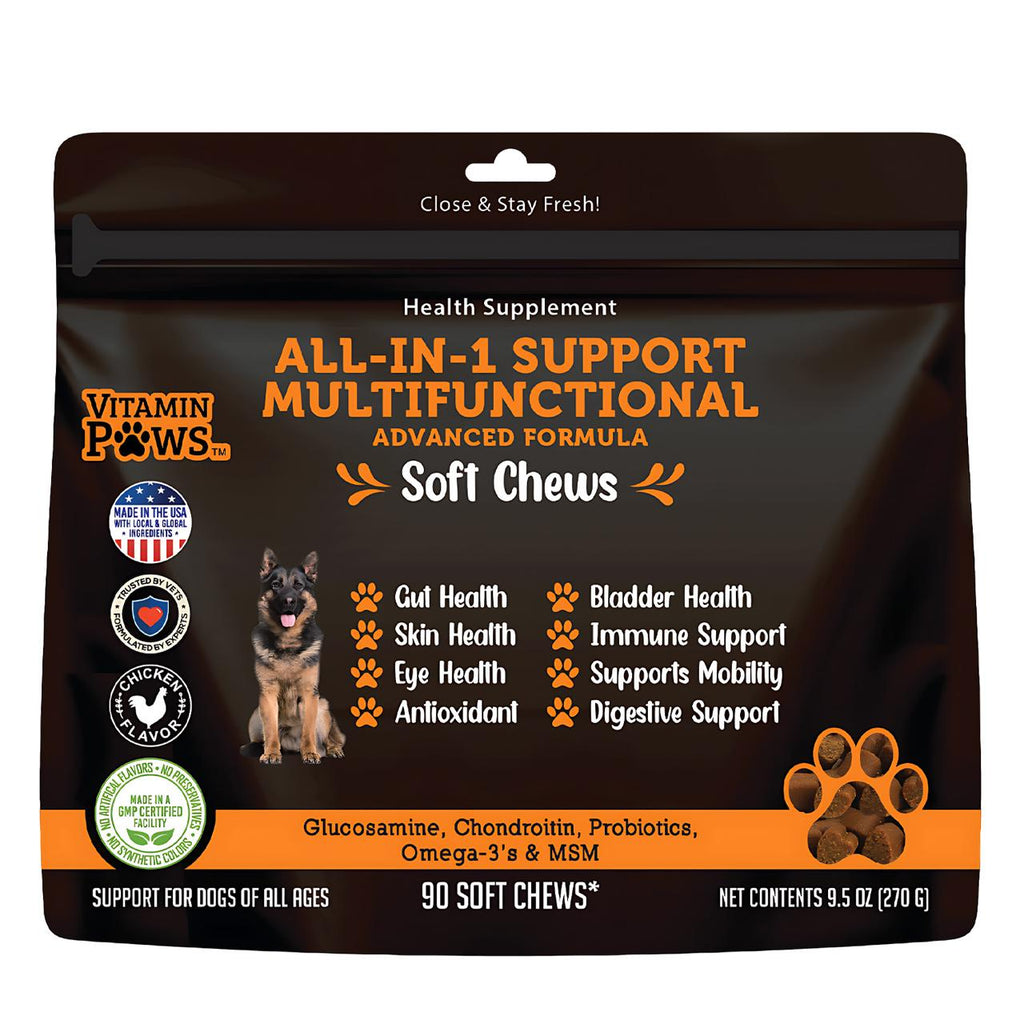In the realm of pet care, ensuring the health and vitality of our beloved canine companions is paramount. While a balanced diet is fundamental, sometimes our furry friends need an extra boost to maintain their optimal well-being. This is where dog vitamins and supplements come into play, offering a range of benefits to support their overall health. Let's delve into the world of dog vitamins and supplements to understand their importance and how they can enhance the quality of life for our four-legged friends.
Understanding Dog Vitamins and Supplements: Dog Vitamins and Supplements are formulated to provide additional nutrients that may be lacking in a dog's diet. They come in various forms such as chewable tablets, powders, liquids, and treats, making it convenient for pet owners to administer.
Essential Nutrients for Dogs: Dogs require a balanced intake of essential nutrients including vitamins, minerals, amino acids, and fatty acids to thrive. While commercial dog foods are designed to meet these requirements, factors such as age, breed, activity level, and health conditions can affect nutrient absorption and utilization.
Benefits of Dog Vitamins and Supplements:
Joint Health: Glucosamine and chondroitin supplements can promote joint health and mobility, particularly beneficial for senior dogs or breeds prone to joint issues like hip dysplasia.
Skin and Coat Health: Omega-3 fatty acids found in fish oil supplements can help improve skin and coat condition, reducing itching, flakiness, and promoting a shiny coat.
Immune Support: Vitamins such as vitamin C and E, along with antioxidants like selenium and zinc, can bolster the immune system, helping dogs ward off infections and diseases.
Digestive Health: Probiotic supplements can aid in maintaining a healthy gut flora, improving digestion, nutrient absorption, and reducing gastrointestinal issues like diarrhea and constipation.
Choosing the Right Supplements: When selecting supplements for your dog, it's essential to consult with a veterinarian to identify specific needs and ensure safety and efficacy. Factors to consider include the dog's age, health status, existing diet, and any underlying medical conditions.
Quality Matters: Opt for supplements made by reputable brands that undergo rigorous testing for purity, potency, and safety. Look for products with recognizable ingredients and avoid those containing artificial additives, fillers, or unnecessary additives.
Introducing Supplements into Your Dog's Routine: Introduce supplements gradually into your dog's diet to minimize the risk of digestive upset. Follow the recommended dosage guidelines provided by the manufacturer or your veterinarian, and monitor your dog's response closely.
Monitoring and Adjusting: Regularly monitor your dog's health and behavior after introducing supplements. Keep track of any improvements or adverse reactions and adjust the dosage or type of supplement as necessary.
Incorporating Supplements into a Holistic Approach: While supplements can be beneficial, they should complement a well-balanced diet, regular exercise, and preventive healthcare measures such as vaccinations and routine veterinary check-ups.
For More Info :-
skin support supplement for Pets






Comments